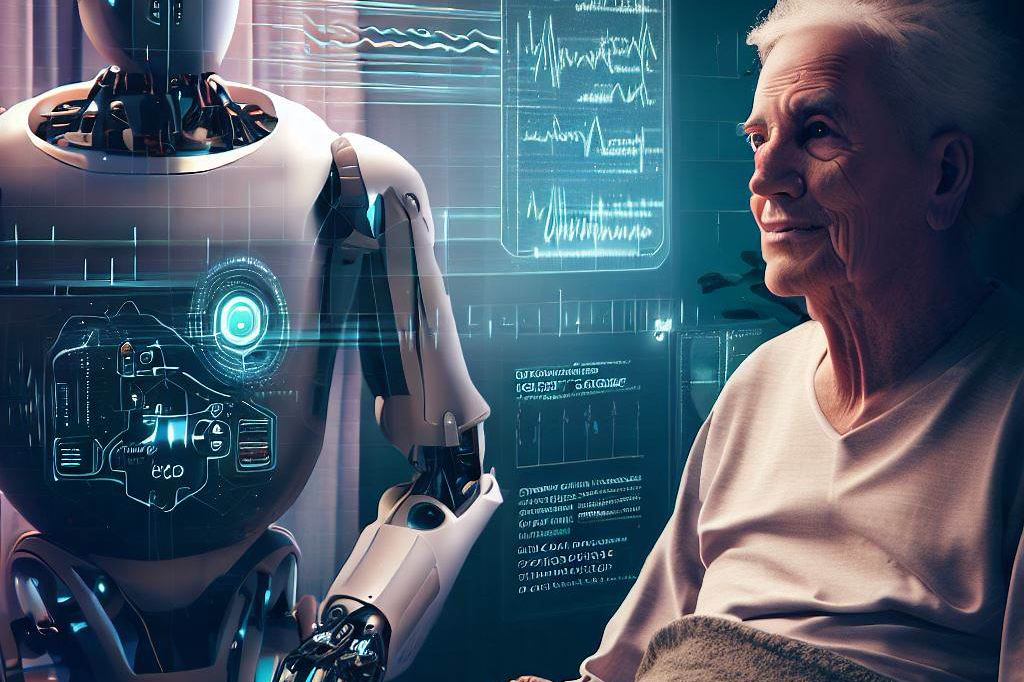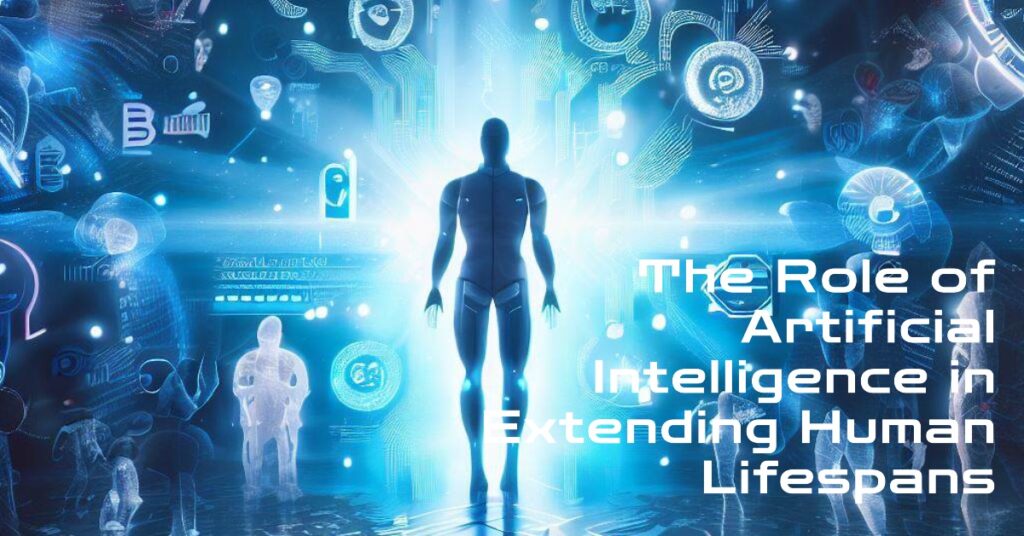The Role of Artificial Intelligence in Extending Human Lifespans
Artificial Intelligence (AI) has emerged as a transformative force in various fields, and its potential to contribute to extending human lifespans is a topic of significant interest. With advancements in AI technology, researchers and scientists are exploring innovative ways to tackle age-related diseases, enhance medical diagnostics, and develop personalized treatments. In this article, we will delve into how artificial intelligence can revolutionize the quest for longer and healthier lives.
Simplifying Diagnostics and Early Detection

Early detection of diseases is crucial for effective treatment and increasing lifespan. AI can play a pivotal role in simplifying and accelerating diagnostics processes. By analyzing vast amounts of medical data, including medical records, imaging results, and genetic information, AI algorithms can identify patterns and indicators that may be difficult for human physicians to detect. This enables early diagnosis of diseases such as cancer, cardiovascular disorders, and neurological conditions. By catching these diseases in their early stages, interventions can be implemented promptly, leading to more successful outcomes and extended lifespans.
Personalized Medicine and Treatment
Each individual’s genetic makeup and health profile are unique, and personalized medicine is an area where AI shines. AI algorithms can analyze genetic data, medical histories, and lifestyle factors to develop personalized treatment plans. By leveraging machine learning and predictive analytics, AI can identify the most effective treatments and therapies for specific individuals, taking into account their genetic predispositions and other factors. This personalized approach enhances treatment efficacy, reduces adverse effects, and ultimately contributes to extending human lifespans.
Drug Discovery and Development
The traditional process of discovering and developing new drugs is time-consuming and costly. AI offers an opportunity to accelerate this process, potentially leading to breakthroughs in treatments for age-related diseases. By leveraging AI algorithms, researchers can sift through massive volumes of biomedical data, including scientific literature, clinical trials, and molecular databases, to identify potential drug candidates. AI can also simulate drug interactions and predict their effectiveness, streamlining the selection of the most promising candidates for further development. This expedited drug discovery process holds immense promise for extending human lifespans by introducing more effective treatments and therapies.
Precision Aging and Geriatric Care

Aging is a complex process influenced by various genetic, environmental, and lifestyle factors. AI can aid in understanding the mechanisms of aging and developing precision interventions to mitigate its effects. By analyzing large-scale datasets of aging populations, AI algorithms can identify patterns, risk factors, and predictive markers of age-related diseases. This knowledge can inform preventive measures and targeted interventions to delay or minimize the impact of aging on individuals. Additionally, AI-powered robotic assistants and sensor technologies can enhance geriatric care by monitoring vital signs, providing personalized reminders, and alerting healthcare professionals in case of emergencies, thereby improving the quality of life and extending lifespans for the elderly population.
Enhancing Research and Collaboration
AI can revolutionize the way research is conducted by automating repetitive tasks, processing vast amounts of data, and facilitating collaboration among researchers. With AI-enabled tools and platforms, scientists can analyze complex datasets more efficiently, uncover hidden patterns, and gain deeper insights into the mechanisms of diseases and aging processes. AI algorithms can also assist in identifying potential research partners and experts in specific fields, fostering collaboration and knowledge sharing. By accelerating research and enabling interdisciplinary collaboration, AI has the potential to propel breakthroughs in extending human lifespans.
Ethical Considerations and Challenges
While the potential of AI in extending human lifespans is promising, it is essential to address the ethical considerations and challenges that arise. Privacy and data security concerns, algorithmic biases, and equitable access to AI-driven healthcare technologies are among the key areas that need careful consideration. It is crucial to ensure that AI technologies are developed and deployed in a responsible and inclusive manner, with ethical implementation and regulatory frameworks in place. Striking a balance between technological advancements and ethical considerations will be vital to maximize the benefits of AI in extending human lifespans while ensuring equity and fairness for all.
In conclusion, artificial intelligence has the potential to revolutionize the quest for longer and healthier lives. From simplifying diagnostics and enabling early detection to personalized medicine, drug discovery, precision aging, and enhancing research collaboration, AI offers unprecedented opportunities in extending human lifespans. However, it is crucial to navigate the ethical considerations and challenges, ensuring responsible and inclusive implementation. By harnessing the power of AI while upholding ethical principles, we can pave the way for a future where humans can enjoy extended lifespans and improved quality of life. As we continue to explore the possibilities of AI, let us embrace innovation while prioritizing the well-being and longevity of humanity.

C M, a seasoned editor, journalist, and consultant, is deeply fascinated by the convergence of technology, space, and the future of humanity.
With a particular interest in transhumanism, futurology, and the philosophical and ethical dimensions of these domains, C M serves as the lead contributor to TranscendSphere and SpaceSpotlight.
When not penning insightful articles on these rapidly evolving fields, C M indulges in their love for podcasts and books, proudly embracing their status as a ‘Happy Nerd Extraordinaire!’





